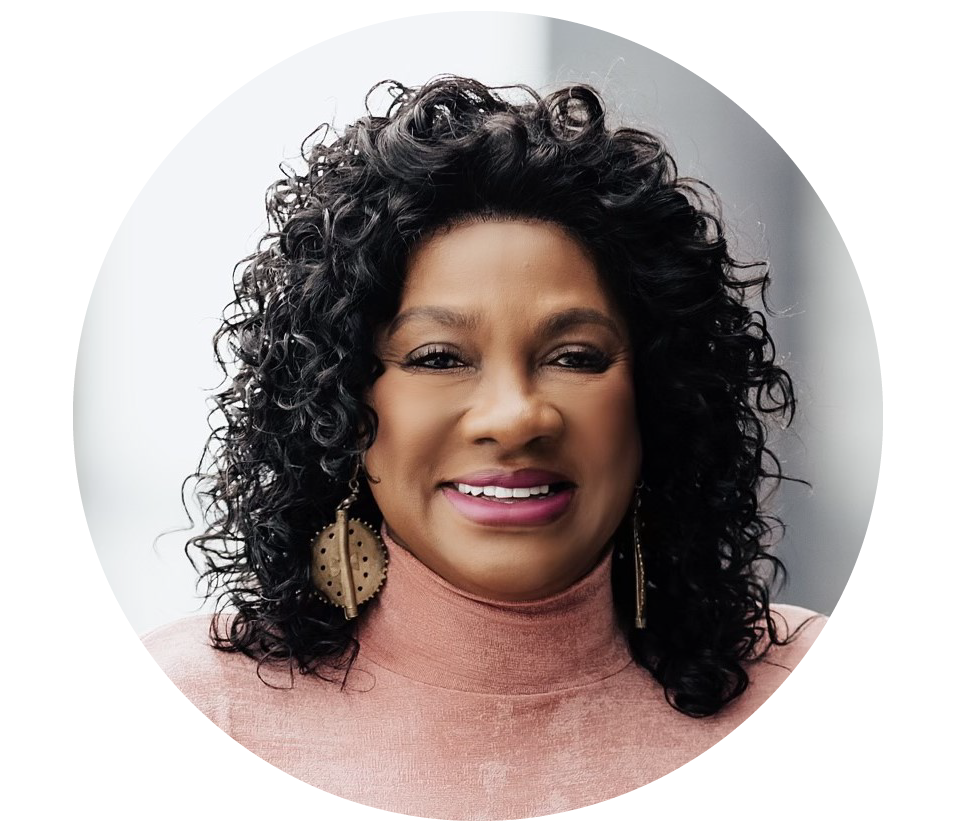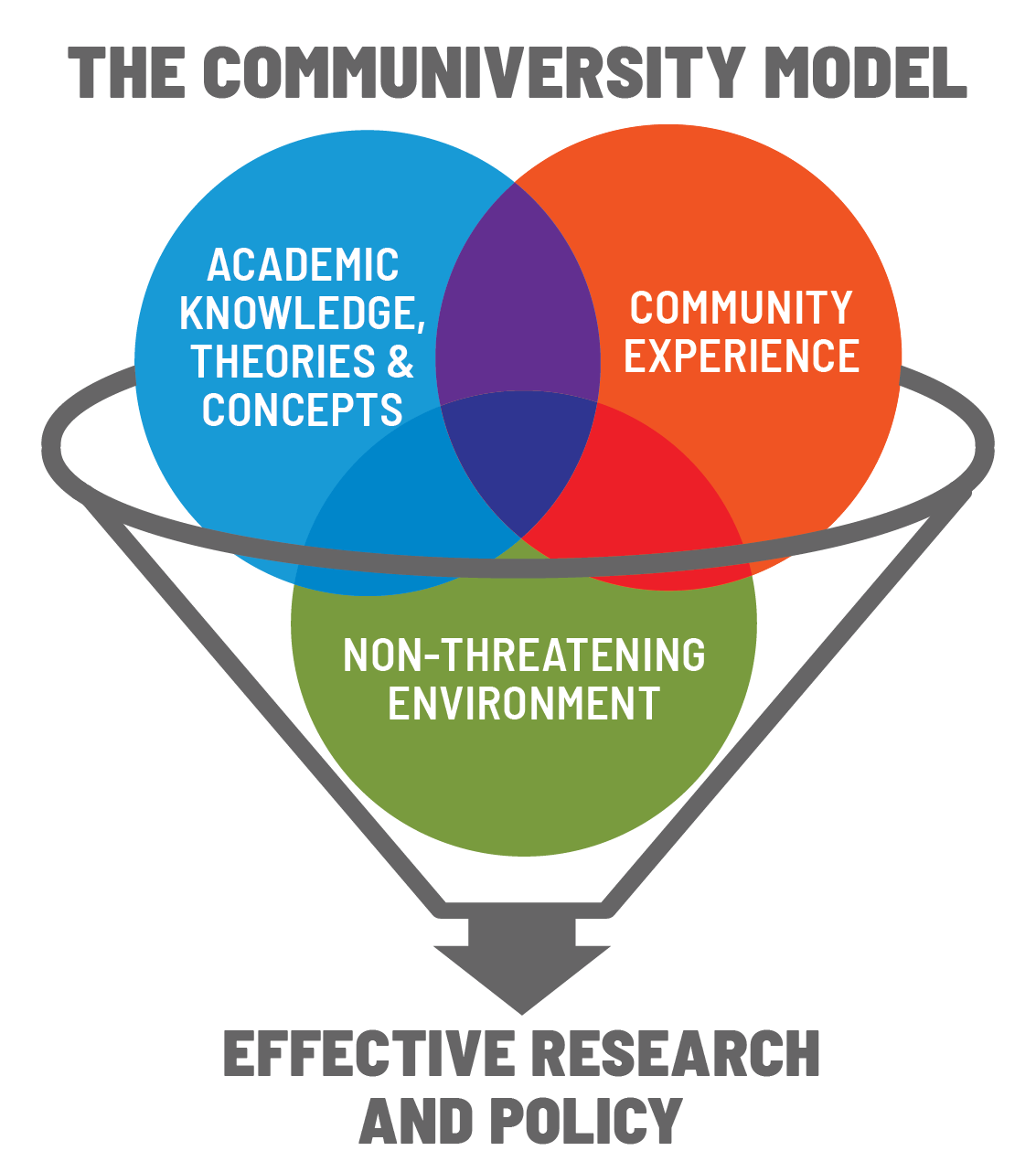Our Story
Mission Statement
The Deep South Center for Environmental Justice is dedicated to improving the lives of children and families harmed by pollution and vulnerable to climate change in the Gulf Coast Region through research, education, community and student engagement for policy change, as well as health and safety training for environmental careers.Vision Statement
Shaping the future for children and families in the Gulf Coast Region to thrive in a healthy and just environment.
 The Deep South Center for Environmental Justice (DSCEJ) was founded by Dr. Beverly Wright in 1992 in collaboration with community environmental groups and other universities within the Southern region to advance environmental justice. Since this time, the Center has become a powerful resource for environmental justice research, education, as well as health and safety training for environmental careers.
The Deep South Center for Environmental Justice (DSCEJ) was founded by Dr. Beverly Wright in 1992 in collaboration with community environmental groups and other universities within the Southern region to advance environmental justice. Since this time, the Center has become a powerful resource for environmental justice research, education, as well as health and safety training for environmental careers.
The DSCEJ provides opportunities for communities, scientific researchers, and decision makers to collaborate on projects that promote the rights of all people to be free from environmental harm as it impacts health, jobs, housing, education, and a general quality of life. A major goal of the Center continues to be the development of leaders in communities of color along the Mississippi River Chemical Corridor and the broader Gulf Coast Region that are disproportionately harmed by pollution and vulnerable to climate change.
The Deep South Center for Environmental Justice was formerly affiliated with Xavier University and Dillard University, two historically Black universities in New Orleans, Louisiana. Recently, the Center’s leadership restructured the organization to be a fully independent, nonprofit entity in order to rise to the unique challenges of climate change facing communities of color and poor communities in the South. The Center continues to maintain and grow collaborative relationships with HBCUs in Louisiana and around the country.
Since its inception, the DSCEJ has garnered numerous grants to support innovative projects in the areas of research, education, capacity-building, public advocacy, and training designed for communities, workers, as well as K-12 and college students to achieve environmental justice.
The Birth of “Communiversity”
From the time of its founding, the DSCEJ set out to change the unequal relationship between university researchers and communities that hindered problem-solving. This was a one-sided relationship in terms of who controlled the dynamics of the interaction, who was perceived as knowledgeable, and who benefited. The Center’s Executive Director Dr. Beverly Wright developed the “Communiversity Model” to instill equitable partnerships between communities and universities. The Center applies the Communiversity Model in preparing residents of communities to have a voice on critical issues, which begins with listening to community concerns first and then providing research, education and training on identified issues.
 The essence of the Communiversity Model is an acknowledgment that for effective research and policy-making, valuable community life experiences regarding environmental insult must be integrated with the theoretical knowledge of academicians. Either group alone is less able to accomplish the goal of achieving environmental sustainability and equity, but the coming together of the two groups in a mutually respectful and beneficial relationship encourages significant strides toward achieving solutions. The Communiversity Model is comprised of guidelines and processes for ensuring community members have an equal voice with university researchers in developing, resourcing, and implementing projects, and can benefit from the partnership. This model emphasizes collaborative management of the partnership between a community and a university. It also fosters bilateral understanding and mutual respect between community residents and academicians.
The essence of the Communiversity Model is an acknowledgment that for effective research and policy-making, valuable community life experiences regarding environmental insult must be integrated with the theoretical knowledge of academicians. Either group alone is less able to accomplish the goal of achieving environmental sustainability and equity, but the coming together of the two groups in a mutually respectful and beneficial relationship encourages significant strides toward achieving solutions. The Communiversity Model is comprised of guidelines and processes for ensuring community members have an equal voice with university researchers in developing, resourcing, and implementing projects, and can benefit from the partnership. This model emphasizes collaborative management of the partnership between a community and a university. It also fosters bilateral understanding and mutual respect between community residents and academicians.
Cultivating Community Leaders
The Deep South Center for Environmental Justice has become a powerful resource for environmental justice research, education and training. The Center has developed curricula that are culturally sensitive and tailored to the research, educational and training needs of the community. In partnerships with communities, the Center has developed and implemented projects focused on assessing environmental conditions, preventing environmental harm, conducting environmental clean-up, managing disaster recovery and rebuilding, and conducting worker training programs. The Center has designed these community capacity building projects to also meet urgent needs in times of crisis that have included Hurricane Katrina, the BP Oil Drilling Disaster and Hurricane Sandy. Through these projects, the Center has helped communities to achieve important environmental justice victories.
Since 1992, the Center has cultivated the leadership of people of color living along the Louisiana Mississippi River Chemical Corridor and in the broader Gulf Coast Region in the areas of environmental, social, and economic justice. DSCEJ has made great strides in catalyzing the incredible metamorphosis of local grassroots community residents into national and international advocates and experts.
Developing a Workforce for Environmental Careers
DSCEJ innovative worker health and safety training programs funded by the National Institutes of Environmental Health Science (NIEHS). DSCEJ’s programs offer women and men, who are often recruited from DSCEJ’s partner communities, with a suite of classes that prepare them for environmental careers. The classes offer rigorous health and safety training as well as education on personal development and life skill. Students earn certifications in lead abatement, asbestos removal, mold remediation, and hazardous waste operations and emergency response. Since 1995, the Center has trained men and women in worker health and safety with a job placement rate of eighty-five percent (85%). In partnership with Texas Southern University and under a cooperative agreement with the National Institute of Environmental Health Sciences, the Center leads the Environmental Career Worker Training Program and the Hazardous Waste Operations and Emergency Response Program that has expanded to five states.
Inspiring New Scholars
The development of scholarship among college students in fields of study related to environmental justice and climate change is a priority for the DSCEJ. Through educational seminars on college campuses and integrating student interns into its programs, the Center provides students with opportunities for pursuing environmental careers. In more recent years, the Center has developed programs to increase the participation of HBCU students and faculty members in climate change research and policy. An area of focus for the Center is developing college-to-career pipelines for students to enter the myriad of disciplines involving environmental justice and climate justice.
Bringing Research-to-Action on Climate Change
Dr. Beverly L. Wright and Dr. Robert Bullard spearheaded the development of the HBCU Climate Change Consortium, which currently comprises dedicated faculty members and students at 31 HBCUs in 16 states. Since 2011, the Consortium has convened the Annual HBCU Climate Change Conference which brings together noted scholars, climate experts, community leaders and HBCU students and faculty for a three-day program of intensive workshops, lectures, exhibits, and demonstration projects on climate change impacts and solutions.
Improving the Lives of Children in the Gulf Region
Of note is the Center’s most recent collaboration with NavigateNOLA on an endeavor designed to respond to the needs of children who have experienced disasters in communities affected by the climate change effects of severe weather. The SEW NOLA (Social, Emotional Wellness – New Orleans, LA) Project, funded by the W. K. Kellogg Foundation, provides children in a post-disaster recovery environment with the skills for developing social and emotional wellness. The courses and activities offered in the SEW NOLA Project are replicable for building the resilience of children living in communities affected by environmental hazards and disasters.